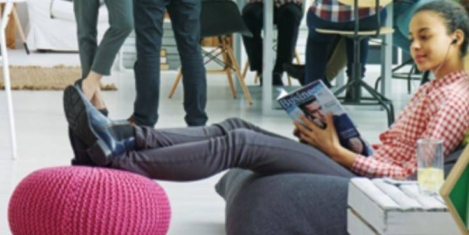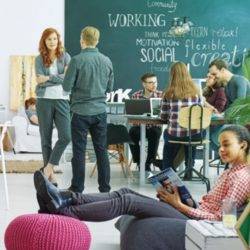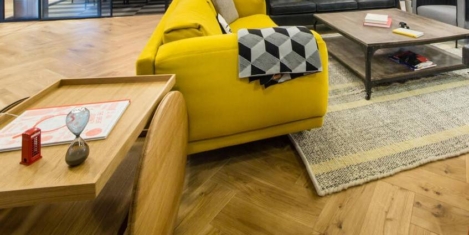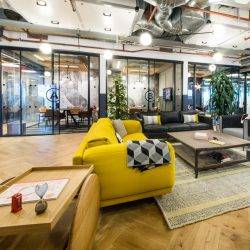To provide the best experiences, we use technologies like cookies to store and/or access device information. Consenting to these technologies will allow us to process data such as browsing behaviour or unique IDs on this site. Not consenting or withdrawing consent, may adversely affect certain features and functions.
The technical storage or access is strictly necessary for the legitimate purpose of enabling the use of a specific service explicitly requested by the subscriber or user, or for the sole purpose of carrying out the transmission of a communication over an electronic communications network.
The technical storage or access is necessary for the legitimate purpose of storing preferences that are not requested by the subscriber or user.
The technical storage or access that is used exclusively for statistical purposes.
The technical storage or access that is used exclusively for anonymous statistical purposes. Without a subpoena, voluntary compliance on the part of your Internet Service Provider, or additional records from a third party, information stored or retrieved for this purpose alone cannot usually be used to identify you.
The technical storage or access is required to create user profiles to send advertising, or to track the user on a website or across several websites for similar marketing purposes.
 Organisations are struggling to keep pace with workplace shifts including skills gaps, the development of artificial intelligence, the demands of employees and new social expectations, according to the latest Human Capital Trends report from Deloitte. In its 2018 edition, The Rise of the Social Enterprise, Deloitte focuses on the growing expectations of individuals and the pace at which technology is shaping organisations’ human capital priorities.
Organisations are struggling to keep pace with workplace shifts including skills gaps, the development of artificial intelligence, the demands of employees and new social expectations, according to the latest Human Capital Trends report from Deloitte. In its 2018 edition, The Rise of the Social Enterprise, Deloitte focuses on the growing expectations of individuals and the pace at which technology is shaping organisations’ human capital priorities.














 A third of UK workers (31 percent) say their employer has little or no interest in their mental health, despite the fact that a fifth (20 percent) are stressed out on a daily basis, and for almost a third (33 percent) the issue is so bad that they’re considering looking for a new role. This is according to a new study of nearly 1,300 workers by ADP which found that workplace stress peaks amongst younger employees, with 22 percent of workers under 35 saying they experience stress every day, and 42 percent saying that it is so bad, they’re considering jumping ship. This contrasts with only 19 percent and 26 percent respectively of those over 35 who feel this way, suggesting employees become better at managing stress as they get older.
A third of UK workers (31 percent) say their employer has little or no interest in their mental health, despite the fact that a fifth (20 percent) are stressed out on a daily basis, and for almost a third (33 percent) the issue is so bad that they’re considering looking for a new role. This is according to a new study of nearly 1,300 workers by ADP which found that workplace stress peaks amongst younger employees, with 22 percent of workers under 35 saying they experience stress every day, and 42 percent saying that it is so bad, they’re considering jumping ship. This contrasts with only 19 percent and 26 percent respectively of those over 35 who feel this way, suggesting employees become better at managing stress as they get older. 






 Corporate real estate departments need to become more effective partners in the agile transformation of their broader organizations., claims a new survey conducted by CBRE, in partnership with CoreNet Global. When describing Portfolio Agility, i.e. the ability to rapidly adapt, scale and reposition the organization’s real estate portfolio to support shifting enterprise needs, 67 percent consider portfolio agility as the most important type of agility for business success, yet only 14 percent consider themselves highly agile in this area. The most prevalent portfolio agility practices included negotiating flexible space options in the lease, seeking shorter and/or more flexible lease terms, supporting an enterprise-wide flex-work program and delivering free address work environments. The report states that new workplace guidelines for efficiency have altered the way companies plan for density and more occupiers are incorporating third-party ‘agile space’ into their overall real estate strategy.
Corporate real estate departments need to become more effective partners in the agile transformation of their broader organizations., claims a new survey conducted by CBRE, in partnership with CoreNet Global. When describing Portfolio Agility, i.e. the ability to rapidly adapt, scale and reposition the organization’s real estate portfolio to support shifting enterprise needs, 67 percent consider portfolio agility as the most important type of agility for business success, yet only 14 percent consider themselves highly agile in this area. The most prevalent portfolio agility practices included negotiating flexible space options in the lease, seeking shorter and/or more flexible lease terms, supporting an enterprise-wide flex-work program and delivering free address work environments. The report states that new workplace guidelines for efficiency have altered the way companies plan for density and more occupiers are incorporating third-party ‘agile space’ into their overall real estate strategy.
 In a workplace dominated by insecurity, gig work and intelligent machines we need to improve our understanding of their potential impact on health, safety and wellbeing claims a new report.
In a workplace dominated by insecurity, gig work and intelligent machines we need to improve our understanding of their potential impact on health, safety and wellbeing claims a new report. 







April 9, 2018
How the UK car industry is driving the future of workplace design
by Paul Dunn • Comment, Workplace design
(more…)